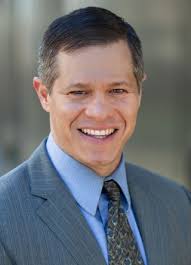Podcast: Play in new window | Download
Subscribe: Spotify | Email | TuneIn | RSS
Have you ever lamented the fact that there isn’t some kind of instruction book to help you navigate your scientific training?
Wouldn’t it be nice if someone explained how to choose a mentor, or what it means to give a ‘job talk?’ And is there any advice for how to deal with that negative peer-reviewer, or how to escape a sub-par PI?


Well, you’re in luck, because The Early Career Researcher’s Toolbox: Insights into Mentors, Peer Review, and Landing a Faculty Job by Andres De Los Reyes, PhD, is exactly the guide you’ve been looking for.
And this week, we get this clinical psychologist’s insight into why academic training is so stressful, and how you can overcome the major hurdles along the way.
Emerging Academics

Dr. De Los Reyes shares his definition of an Emerging Academic, a word he uses to describe that intense training period between undergrad and a faculty position. It’s a little bit like ’emerging adulthood’, he says, when we leave home to become real ‘grownups’, with all the uncertainty and responsibility that entails.
One reason academia makes that transition difficult is because our training programs are more focused on ‘book smarts’ than ‘street smarts,’ he says. We spend years learning the depth and nuance of our scientific field, but hardly anyone teaches us the actual skills that faculty use to succeed.
For example, you may get lucky enough to co-author a paper or two with your PI, but has anyone taught you how to successfully apply for grants?
Do you know how much budget to ask for when setting up a lab?
And what do you do if one of your competitors reviews your paper, and actively works against you with the editor?
The Early Career Researcher’s Toolbox answers those questions and more. It’s packed with step-by-step instructions, sample emails and cover letters, and personal stories from other Emerging Academics to help you realize you’re not alone on this journey.
It’s essential reading whether you’re an undergrad, a new faculty member, or anywhere in between.
Black Lives Matter
We also take some time in this episode to continue a conversation on many hearts and minds recently.
As the United States opens its eyes to the institutional racism that resulted in the murders of Breonna Taylor, George Floyd, Ahmaud Arbery, and many before them, we must also reflect on and mobilize against the racism endemic in academia and research institutions.
That starts by listening to the voices of black and minority students who have faced implicit and explicit bias at every stage of life, including the Ivory Tower.
Then, we must do some work to understand your own implicit biases, and how they’re impacting others. Identify common microaggressions, understand stereotype threat, and reflect on the ways that opportunity and privilege are not evenly distributed and have outsized impact on our own successes. There are many worthwhile books to get you started.
Once you’ve started to learn about the ways these issues can manifest in your world, work on moving from “bystander” to “upstander.” Don’t just recognize microaggressions and bias in action, but become someone who challenges and stands up against racism.
Then look around your university, department or lab – is there diversity in your grad school cohort? In the faculty? In your lab?
Black faculty are severely underrepresented in STEM fields at research institutions in the US. There’s a good chance there may be NO Black faculty in your department.
Bring this up to your PI, to your Director of Graduate Studies, to your chair. So many of these problems in academia actually can’t fully be solved until there is representation of Black scientists in faculty and leadership positions at universities and in our departments. Demand this of your programs!
We intend to continue this conversation over the coming months. We believe both in the basic value of every human life, but also in the compounding value of diversity in research. Science is more effective when we approach our questions from every side, and training scientists with variety in their backgrounds, values, thought processes, and experience will only accelerate our progress.


